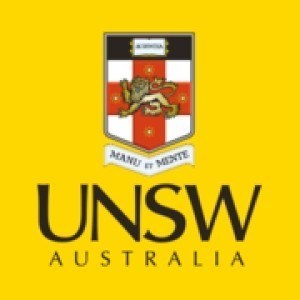Photos of university / #northumbriauni
Applied Linguistics at The University of Newcastle is a dynamic and comprehensive program designed to equip students with a deep understanding of language and its applications in various real-world contexts. This degree explores the intricate ways in which language operates within society, focusing on areas such as language acquisition, language teaching, speech communication, language policy, and multilingualism. Whether you're interested in becoming a language educator, working in language assessment, or engaging in research related to language development, this program provides the theoretical knowledge and practical skills necessary to thrive in diverse linguistic settings. Throughout your studies, you'll examine how language influences identity, culture, and communication, while gaining insights into language disorders and the cognitive processes involved in language learning. The curriculum integrates linguistics, psychology, education, and technology, offering a multidisciplinary approach that prepares graduates for careers in education, government, media, and community organizations. Students will have opportunities for hands-on experiences through internships, research projects, and collaborations with industry partners, enabling them to apply their learning in real-world environments. The program emphasizes critical thinking, analytical skills, and innovative approaches to language challenges, fostering a global perspective on language issues. Graduates of Applied Linguistics are well-equipped to contribute to language education, policy development, and linguistic research, supporting multicultural and multilingual communities. With access to state-of-the-art facilities and a supportive academic community, students are encouraged to pursue their interests and develop their professional networks. Embark on a journey to understand the power of language and unlock numerous career pathways in this vibrant and essential field.
The NSW Department of Education will recognise graduates from the Master of Applied Linguistics as a English as a Second Language (ESL) teacher, where they also have completed a licensed instruction degree and have been registered since teachers using the NSW Educational Standards Authority (NESA). For recognition in other countries and territories, graduates should contact the Department of Education in the relevant jurisdiction to find out the specific requirements for recognition as an ESL teacher.
- Bachelor Degree in a field area with 1 year relevant work experience
- Or Graduate Certification in a related field area
- Or Homework Honours degree in a related field area. For the purposes of admission, Discipline Areas comprise Linguistics, Education, English, Languages, Psychology and Speech Pathology. Relevant work experience is as a teacher of English as a second/foreign vocabulary.
The University of Newcastle offers various financial assistance options for students enrolled in their Applied Linguistics programs. Domestic students may be eligible for government-funded family and income support schemes, including HECS-HELP for tuition fee assistance, which allows students to defer payments until they reach a certain income threshold. Additionally, scholarships and bursaries are available based on academic merit, need, and specific eligibility criteria, providing partial or full coverage of tuition fees and living expenses. International students enrolling in the Applied Linguistics program can access a range of scholarships aimed at supporting their studies, such as the International Merit Scholarship, which reduces tuition fees, and various regional or country-specific bursaries. The university also offers financial planning services to help students budget and manage their expenses throughout their course duration. Students are encouraged to explore external sources of funding, including government grants, private scholarships, and sponsorships relevant to their country of origin or field of study. Payment plans may be arranged to spread tuition fees over semesterly or yearly installments, making it more manageable for students to finance their education. The university recognizes that pursuing higher education can be a significant financial commitment and strives to provide transparent information and support services to assist students in securing the necessary funding. Overall, the institution is committed to ensuring that financial barriers do not prevent capable students from accessing high-quality education in Applied Linguistics, fostering an inclusive learning environment that promotes academic excellence and professional development.
The Master of Applied Linguistics at The University of Newcastle is a comprehensive graduate program designed for students interested in advancing their understanding of language in practical contexts. This degree offers a balanced curriculum that combines theoretical foundations with applied skills, preparing graduates for diverse careers in language education, research, policy, and language technology. The program covers a wide range of topics, including language acquisition, language teaching methodologies, linguistics, intercultural communication, and language assessment. Students will have opportunities to develop their practical skills through coursework, supervised projects, and possibly practicum experiences, depending on specific course structures.
The program is suitable for graduates from various backgrounds, including language studies, education, psychology, or translating and interpreting. It aims to foster critical thinking and research skills, enabling students to analyze language issues and develop innovative solutions for real-world problems. The university emphasizes a strong research component, offering pathways for students to engage in research projects under the guidance of experienced academics. This prepares graduates for careers in academia, government agencies, or private sector organizations involved in language services, technology, or consultancy.
Students enrolled in the Master of Applied Linguistics can benefit from the university’s state-of-the-art facilities and resources, including access to language laboratories, libraries, and online learning platforms. The program often includes opportunities for interdisciplinary collaboration and fieldwork, which enrich the learning experience. Additionally, graduates may find employment in diverse sectors such as language teaching, curriculum development, language policy making, and multilingual communication strategies. The program aims to develop both academic and practical competencies, ensuring that graduates are well-equipped to meet the demands of the evolving landscape of applied linguistics worldwide.





